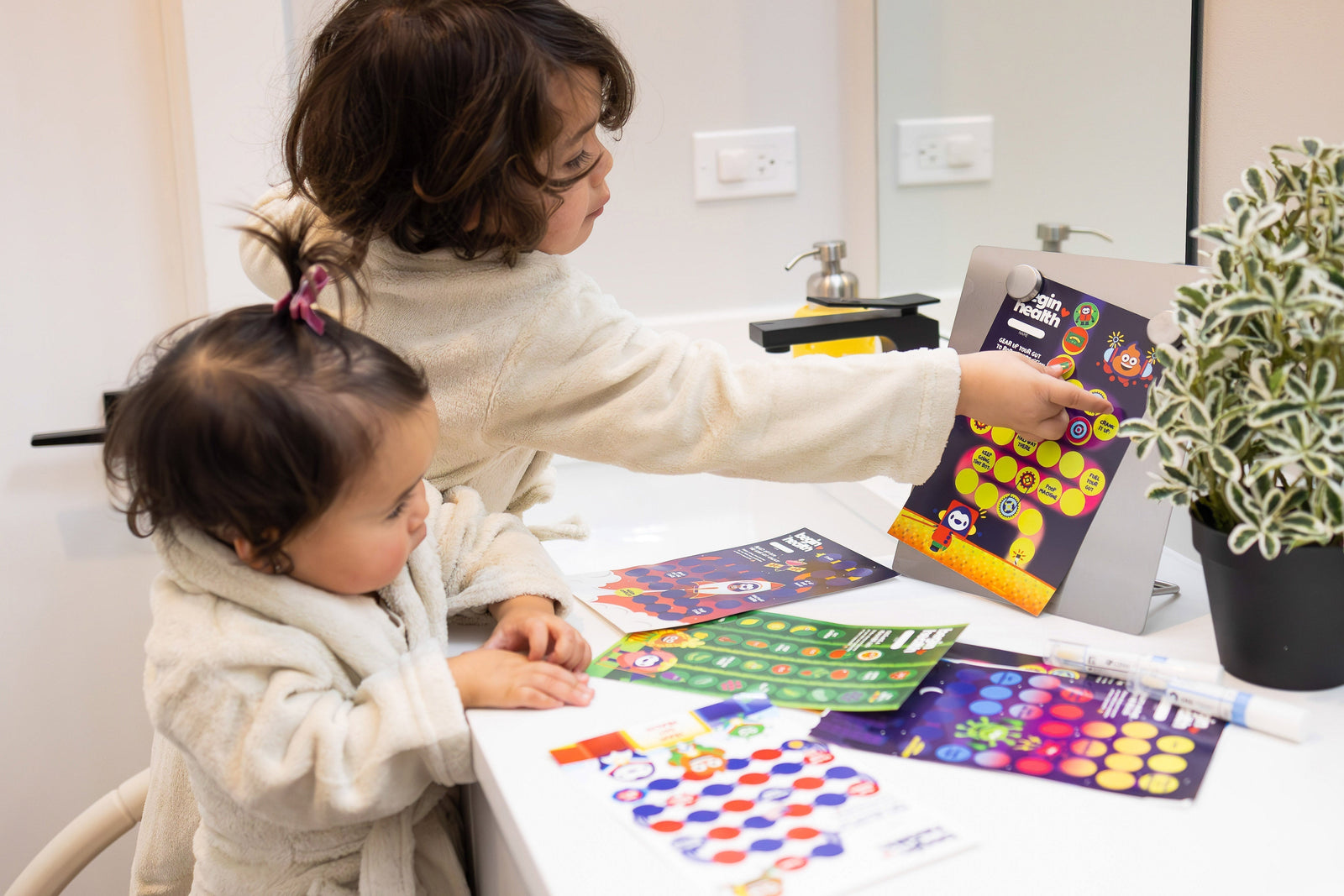Your Cart is Empty
Continue shoppingCan Emotional Stress Cause Constipation in Kids?
Medically Reviewed by May Zhu, RDN | Published May 24, 2024
share this article

Constipation is a common issue among kids, causing significant discomfort and distress. While dietary habits and physical inactivity are well-known culprits, emotional issues also play a crucial role in this condition. This blog explores how emotional problems and the behavior of withholding can lead to constipation in kids.
Understanding Constipation in Kids
Constipation in kids is characterized by infrequent bowel movements, hard stools, and difficulty passing stools. It can stem from various factors, including poor diet, dehydration, lack of exercise, and emotional stress. Among these, emotional issues and withholding behavior are often overlooked but significant contributors.
Daily reads to help your little ones lead happier and healthier lives.
Buy Now
Join the
Happy Gut Club
Emotional Issues and Constipation
Anxiety and Stress: Anxiety and stress can have a direct impact on a kid's digestive system. The gut is closely linked to the brain through the gut-brain axis, meaning emotional stress can affect bowel movements. According to a study published in the Journal of Pediatric Gastroenterology and Nutrition, kids who experience high levels of stress are more likely to suffer from constipation [1]. Stress can alter the gut's motility and sensitivity, leading to slower transit times and harder stools.
Fear of Pain: Kids who have experienced painful bowel movements may develop a fear of defecation, leading to withholding behavior. This avoidance can create a vicious cycle where withholding leads to harder stools, which in turn cause more pain. A study in Pediatrics found that fear of pain is a significant factor in pediatric constipation [2]. Kids may deliberately avoid going to the bathroom to prevent discomfort, exacerbating the problem.
Toilet Training Issues: During toilet training, kids may feel pressured or anxious about using the toilet. This pressure can lead to withholding behavior, where they avoid going to the bathroom. Research published in the Journal of Developmental & Behavioral Pediatrics highlights that difficulties during toilet training are a common cause of constipation [3]. The stress associated with the training process can lead to withholding and subsequent constipation.
Environmental Changes: Significant changes such as starting school, moving to a new home, or family stress can disrupt a kid's routine and emotional well-being, leading to constipation. A study in the American Journal of Gastroenterology found that environmental changes and the resulting emotional stress can negatively impact bowel habits in kids [4]. These changes can cause anxiety, leading to withholding and constipation.
Behavioral Factors: Behavioral factors, including the desire to control or manipulate situations, can also lead to withholding. Kids might avoid using the toilet due to fear, defiance, or wanting to continue playing. A study in Clinical Pediatrics indicates that behavioral factors, including stubbornness and control issues, are linked to constipation [5]. Such behaviors can result in stool retention and constipation.
The Impact of Withholding
Withholding stool can lead to several complications:
Stool Hardening: The longer stool remains in the colon, the more water is absorbed, making the stool harder and more difficult to pass.
Pain and Discomfort: Hard stools can cause pain and discomfort, which reinforces the withholding behavior.
Encopresis: Chronic withholding can lead to encopresis, where impacted stool leaks out involuntarily.
Addressing Emotional Causes of Constipation
To help alleviate constipation symptoms related to emotional distress, consider the following strategies:
Create a Relaxed Environment: Ensure a stress-free environment, especially during toilet training. Encourage and praise the kiddo without pressure.
Routine and Consistency: Establish a regular bathroom routine to reduce anxiety and create a sense of security.
Encourage Open Communication: Talk to the little one about their fears and anxieties. Understanding their feelings can help address the root cause of withholding.
Seek Professional Help: If emotional issues persist, consider consulting a pediatrician or child psychologist. They can provide strategies to manage stress and anxiety.
Summary
Emotional issues such as anxiety, fear of pain, toilet training stress, environmental changes, and behavioral factors can significantly contribute to constipation in kids by leading to withholding behavior. Addressing these emotional factors through a supportive and understanding approach can help alleviate constipation and promote better digestive health.











